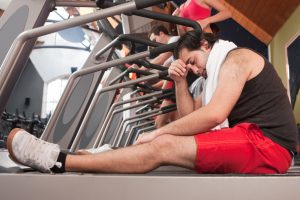Is Fainting Serious?
Fainting happens when a person loses consciousness for a short time because of a lack of oxygen to their brain. The medical term for fainting is syncope. It may occur suddenly, such as when someone moves from a sitting or reclining position to a standing position. The person may feel dizzy, lightheaded, or even nauseous during the episode. Someone who has fainted will usually regain consciousness and feel better within a short time.
Is fainting common?
Fainting is fairly common, particularly in the elderly. Sometimes fainting can run in families. It is often not serious, and the person may not require any medical treatment. However, there are some medical conditions that may contribute to fainting, and they should be identified. In addition, fainting in the elderly can lead to falls and injuries.
What causes fainting?
A drop in blood pressure usually causes fainting. This can happen when someone changes position quickly. People may also experience this type of fainting when having blood drawn, getting an injection, being dehydrated, skipping meals, or from an emotional stress such as receiving upsetting news. This is usually not serious and will quickly pass.
Taking certain medications can increase the risk of fainting. These include medications for anxiety, depression, and high blood pressure. People having certain medical conditions may be more prone to fainting. Examples are diabetes, heart disease, low blood pressure, and anemia.
Should you see a doctor after fainting?
A person with no prior history of fainting should be checked out by a doctor to rule out any serious medical conditions. The doctor will want a full medical history along with the names of any medications and supplements being taken. Tell the doctor what activity immediately preceded thefainting episode. Most people will be given an EKG (electrocardiogram), which shows the electrical activity of the heart.
How to prevent fainting
People who have fainted previously should avoid certain triggers that may cause them to faint again. When feeling dizzy or lightheaded, they should immediately sit down to prevent falling. Sitting with their head between their knees may help. They can also lie down and elevate their legs to increase the blood flow to the brain. They should change positions slowly when standing up. Staying hydrated and not skipping meals helps people to avoid feeling faint.
If someone has fainted, try to position them on their back and loosen any restrictive clothing. Raise their legs a little, if possible. Check to see if the person is breathing and make sure there are no apparent injuries if the person has fallen. When they regain consciousness, don’t allow them to get up too quickly. Call 911 if they don’t regain consciousness within a minute or so.






